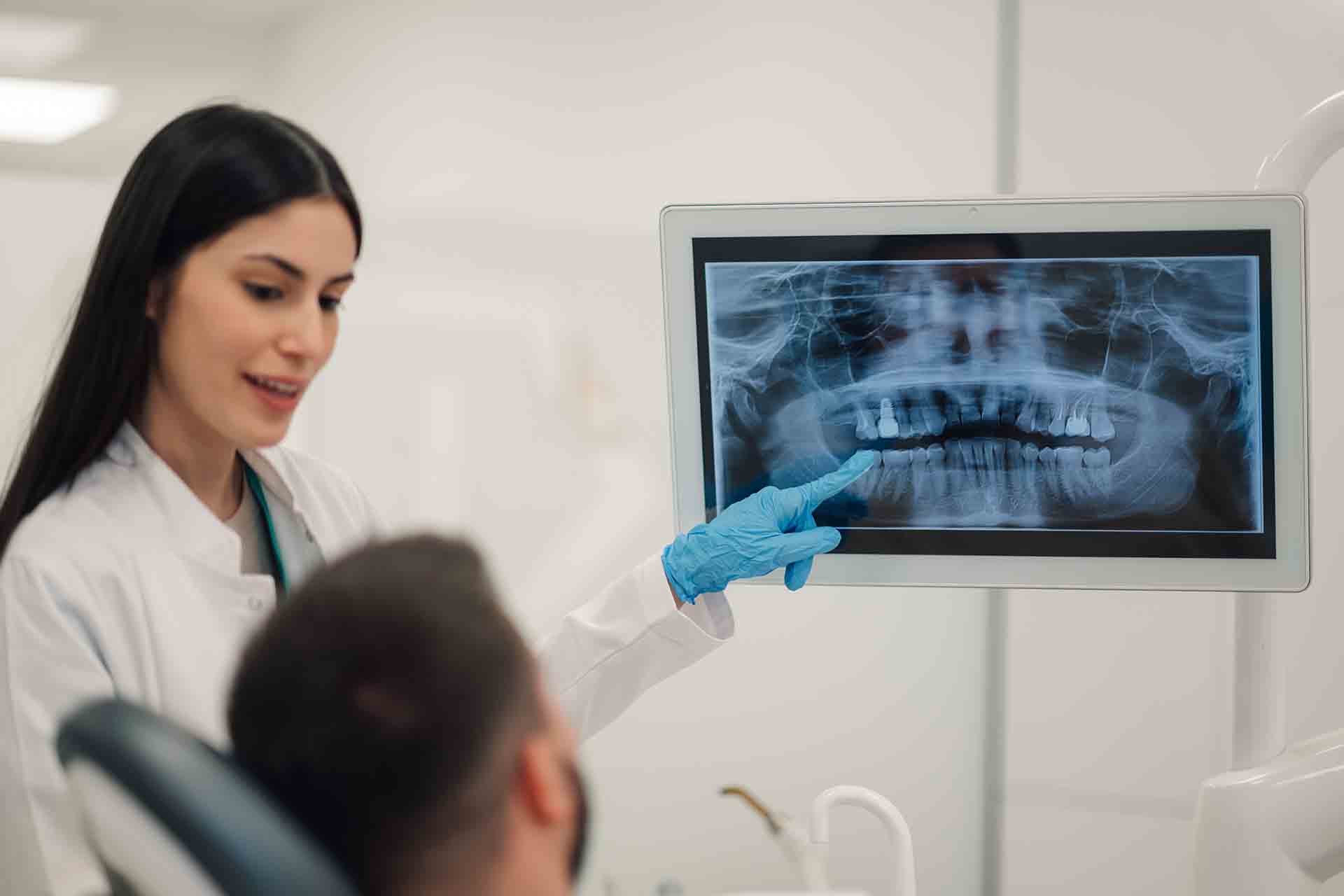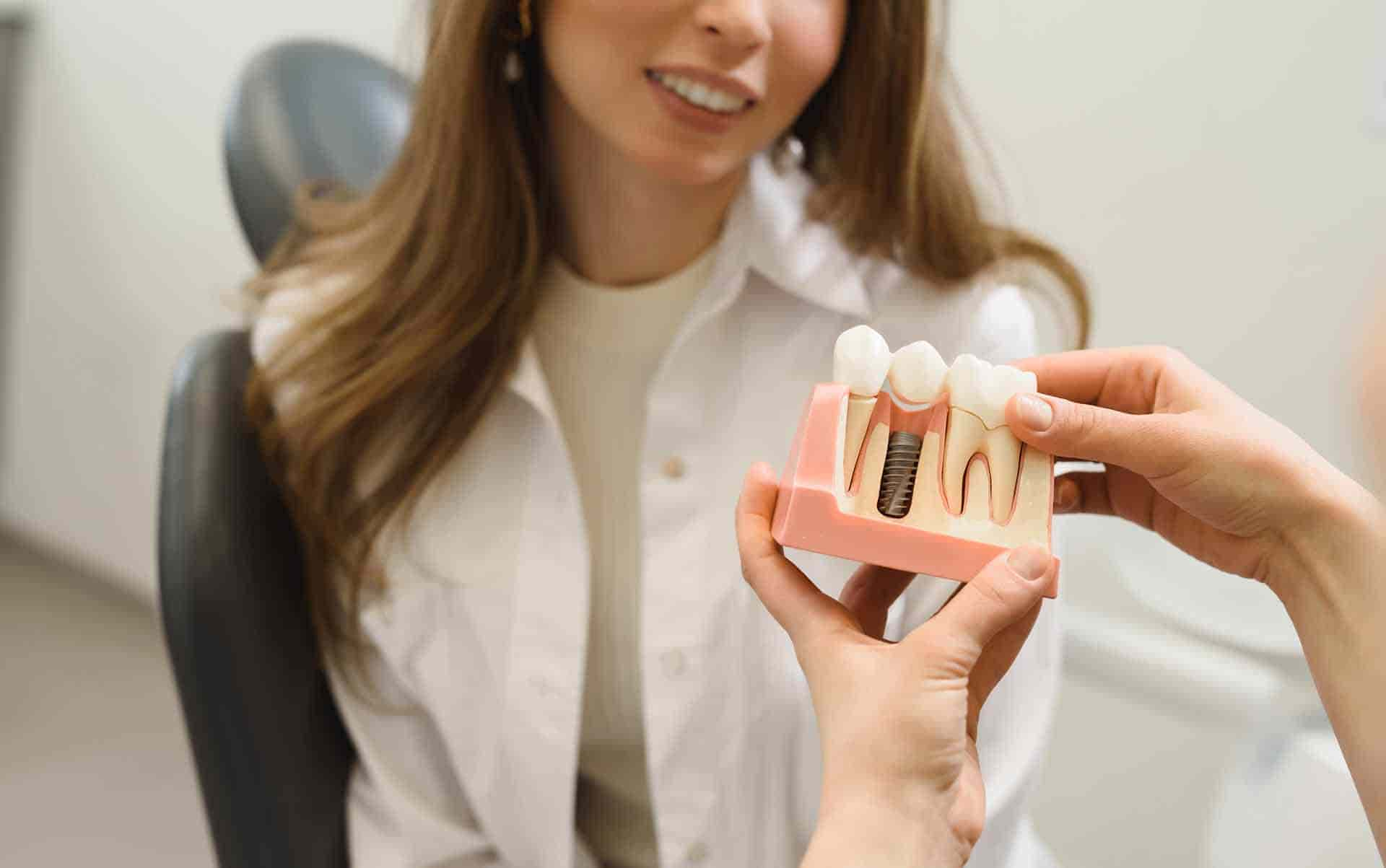Can TMJ Cause Dizziness? Understanding the Link Between Jaw Disorders and Balance
August 2025
Do you ever feel lightheaded for no clear reason?
Struggle with sudden dizziness when standing up or turning your head?
Feel off-balance even when everything else seems normal?
These symptoms can be frustrating and even frightening, especially when you can’t pinpoint the cause. But here’s something many don’t realize: the source of your dizziness might be in your jaw.
Can TMJ cause dizziness? Yes, it can and for many people, temporomandibular joint disorder (TMJ or TMD) leads to surprising symptoms that extend far beyond jaw pain or clicking. Dizziness is one of the most commonly overlooked effects. Let’s break down how TMJ can affect your balance, why it happens, and what you can do.
Can TMJ Cause Dizziness and a Floating Feeling?
One of the more perplexing symptoms linked to TMJ is a "floating" or disconnected sensation, a type of dizziness that doesn't always feel like spinning but more like unsteadiness. This sensation can stem from the jaw joint’s close connection to the inner ear, which plays a crucial role in maintaining balance.
When the jaw muscles tighten or the temporomandibular joint becomes inflamed, it can disrupt nearby nerves or even affect the ear's vestibular system, which maintains equilibrium. The result? You might feel like you're swaying or that the ground beneath you is shifting, even when you’re perfectly still.
Can TMJ Cause Dizziness When Lying Down?
Yes, TMJ can cause dizziness when lying down, especially if there is added pressure on the jaw joint or surrounding muscles. Some people report that the dizziness gets worse when turning over in bed or changing head positions.
This may happen because lying flat can shift the position and movement of the jaw or neck, increasing strain on already tense muscles or inflamed joints. If your TMJ symptoms are more severe at night, they could be interfering with your ability to get restful sleep and even causing ear fullness, headaches, or nausea.
How Long Does TMJ Dizziness Last?
The duration of TMJ-related dizziness varies based on the severity of your condition, how it’s being managed, and whether you're receiving any treatment. For some, dizziness may come and go during flare-ups, while others might feel symptoms persist for days or even weeks.
Factors that can prolong symptoms include:
- Poor jaw alignment
- Stress-related clenching
- Inflammation that affects inner ear balance
- Lack of proper treatment or exercises
The good news? With the right intervention such as working with a TMJ specialist, this dizziness is manageable and often reversible.
How to Stop TMJ Dizziness?
Wondering how to regain control of your balance and well-being? Here's how to start reducing TMJ dizziness today:
-
Jaw Relaxation Exercises
Gentle TMJ exercises can help relax your jaw muscles, improve range of motion, and reduce tension that contributes to dizziness.
-
Posture Correction
Poor posture, especially slouching or forward head position, can strain the head and neck, worsening TMJ symptoms. Try sitting and standing with good posture throughout the day.
-
Physical Therapy
A licensed physical therapist can design a personalized program to improve jaw mobility, reduce inflammation, and restore balance.
-
Anti-Inflammatory Treatments
Over-the-counter anti-inflammatory medications and cold compresses can reduce pain and discomfort during flare-ups.
-
Stress Management
Since TMJ is often stress-induced, strategies like meditation, breathing exercises, or even counseling can help ease muscle tension and reduce dizziness over time.
Can TMJ Cause Dizziness and Nausea?
Absolutely. TMJ-related dizziness is often accompanied by nausea, especially if the inner ear’s balance system is being disturbed. Think of it like a mild form of motion sickness. When your brain receives mixed signals about movement, your body can react with nausea, lightheadedness, or even vomiting in extreme cases.
If you’re also experiencing ear pain, jaw clicking, or facial tension, it’s likely that TMJ is the root cause.
What Does TMJ Dizziness Feel Like?
TMJ dizziness can feel different from traditional vertigo. It may include:
- Feeling off-balance or “wobbly”
- A sense that you're floating or moving when you're still
- Sudden lightheadedness
- Difficulty focusing or concentrating
These symptoms can range from mildly annoying to severely disabling. Identifying them early is key to effective treatment.
Exercises for TMJ Dizziness Relief
Incorporating gentle jaw exercises can be an effective way to manage TMJ symptoms and reduce dizziness. Try the following:
- Resisted mouth opening: Place your thumb under your chin and try to open your mouth slowly while resisting the movement.
- Side-to-side movement: Move your jaw gently side to side to loosen tight jaw muscles.
- Chin tucks: Pull your chin straight back to improve head and neck posture.
These exercises promote better jaw alignment, ease pressure on the joint, and help restore balance.
Can TMJ Cause Dizziness and Headaches?
Yes, TMJ can cause dizziness and headaches, particularly tension-type or cluster headaches that originate near the temples or behind the eyes. These headaches often arise from tight jaw muscles and inflammation around the temporomandibular joint, and they can make dizziness feel worse.
If you're experiencing frequent headaches with dizziness, your jaw joint may be the hidden culprit.
When to See a TMJ Specialist in New York?
If you’re experiencing any of the following symptoms, it may be time to consult a TMJ specialist:
- Recurring dizziness or lightheadedness
- Jaw pain, stiffness, or clicking sounds
- Ear fullness, pressure, or ringing
- Frequent headaches or facial discomfort
- Unexplained balance issues or “floating” sensations
Early diagnosis and proper care can prevent the symptoms from worsening and improve your quality of life.
Find Lasting Relief with Raio Dental
At Raio Dental, our TMJ specialist in New York is experienced in diagnosing and treating complex TMJ symptoms, including those affecting balance, hearing, and overall well-being. We don’t just treat symptoms. We get to the root cause with customized, patient-first care that blends advanced dental techniques, jaw alignment therapies, and lifestyle adjustments to restore your comfort and control.
Struggling with unexplained dizziness, jaw pain, or ear pressure? Don’t wait. Schedule your consultation with a TMJ expert at Raio Dental today and take the first step toward relief.

A Complete Guide to Restoring Damaged Teeth in New York
January 2026Key Takeaways:- Restoring damaged teeth is more reliable than ever with modern dentistry Early treatment helps repair damaged teeth before problems progress Damaged enamel restoration focuses on mineralization and protection, not true regrowth Restorative ...
Preventive Dental Care Trends in 2026: Early Detection & Smart Care
January 2026Key Takeaways:- Preventive dental care trends in 2026 are all about catching problems early and tailoring care to each patient Digital diagnostics and smart oral devices make proactive dental care easier than ...
Is Professional Teeth Whitening Worth the Cost in New York?
January 2026Key Takeaways Professional teeth whitening delivers faster, longer-lasting results In-office treatments are safer than over-the-counter kits Whitening improves confidence and smile appearance Dentist-guided whitening reduces sensitivity risks Results typically last 6–12 months with good care Professional ...
Is Teeth Whitening Permanent?
January 2026A bright, white smile can boost confidence and transform your appearance but one common question patients often ask is, "is teeth whitening permanent?". The truth is that while teeth whitening ...
All-on-X Implants vs. Traditional Dentures: Pros and Cons
October 2025When considering tooth replacement options, many patients wonder about All-on-X Implants vs. Traditional Dentures: Pros and Cons. Both solutions can restore a full arch of teeth, improve oral health, and ...
Maintenance & Aftercare of All-on-X Implants
October 2025Maintenance & Aftercare of All-on-X Implants is essential to ensure the long-term success of your full-arch dental restoration. All-on-X implants offer a stable, durable solution for patients missing multiple teeth, ...
Can a Night Guard Help With Snoring?
September 2025Snoring is a common issue that affects both the person snoring and their sleep partner. For some, it's just a minor nuisance, but for others, it can signal an underlying ...
How to Reduce Swelling After Oral Surgery
September 2025Swelling is one of the most common side effects after oral surgery. Whether you've had your wisdom teeth removed, a tooth extraction, or another procedure, swelling is part of the ...
Can TMJ Cause Dizziness? Understanding the Link Between Jaw Disorders and Balance
August 2025Do you ever feel lightheaded for no clear reason? Struggle with sudden dizziness when standing up or turning your head? Feel off-balance even when everything else seems normal? These symptoms ...
Can Orthodontics Improve a Misaligned Jaw?
September 2025Did you know? A misaligned jaw can cause chronic headaches, ear pain, difficulty chewing, and even lead to temporomandibular joint (TMJ) disorders. Most people think orthodontics is only for straightening ...
What Happens If You Drink Alcohol After Fluoride Treatment?
June 2025Did you know fluoride treatments can reduce tooth decay by nearly 25%? That's why many people include it in their regular dental visits. But once the treatment is done, you ...
























